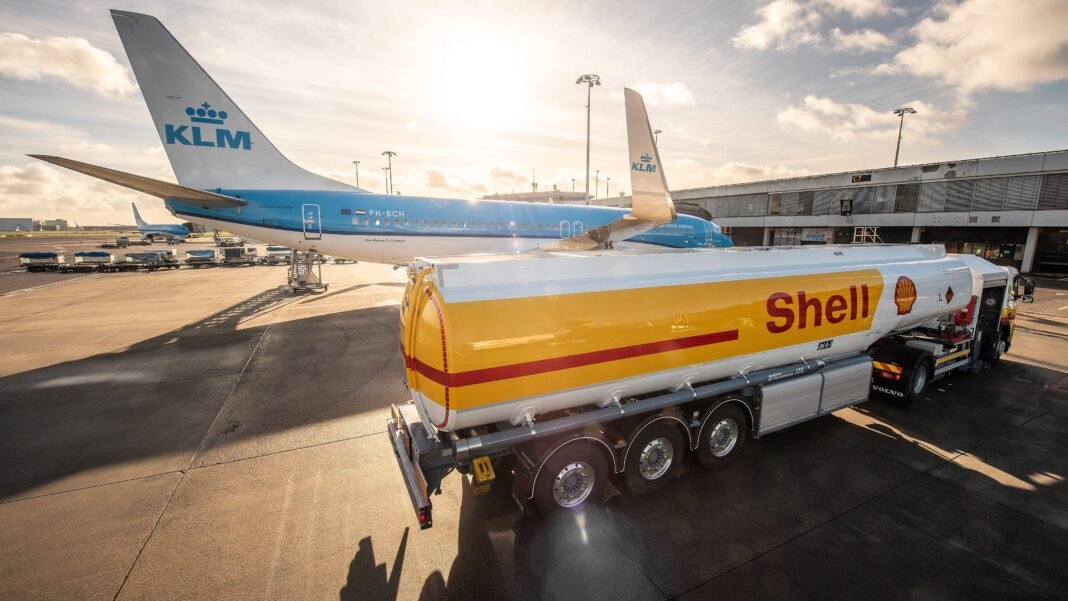Royal Dutch Shell will start producing low-carbon jet fuel by 2025. Currently, aviation accounts for 3% of greenhouse gas emissions across the globe.
Though the aviation industry has wanted to reduce its carbon emissions, it has been a real challenge. There are not many fuel alternatives available that can power jet engines. And, the sustainable aviation fuel (SAF) that is accessible costs about 8x more than standard fuel does. Because of the price and availability, SAF accounts for less than .1% of the fuel being used for planes today.
Regardless, Shell is focused on producing 2 million tons of SAF, which could cut up to 80% of aviation emissions. SAF is made of waste from cooking oil, plants, and animal fats. Shell is working on a synthetic aviation fuel that is made from hydrogen and recycled carbon.
Shell’s announcement couldn’t come soon enough. Just last week, the US announced that their goal is to cut greenhouse-gas emissions from aircraft by 20%. Since Shell – one of the largest oil traders globally – has committed to SAF, it’s safe to say other producers will follow. The US goal could be a reality.
Anna Mascolo, Head of Shell Aviation, said that “Sustainable aviation fuel, whether bio SAF or synthetic SAF, remains the single biggest solution [to meeting emission reduction goals].” Shell’s refinery expects to produce 820,000 tons of fuel, with SAF making up half of that.
With news of warming temperatures and the need for immediate action, this is a step in the right direction. Interest in carbon markets is increasing, offsets are taking the lead, and technological advances (like SAF) are being pushed ahead. Plus, numerous countries have re-committed themselves to the Paris Agreement – an act of solidarity and action.
It seems that change is happening for the better.
Cue cautious optimism.

